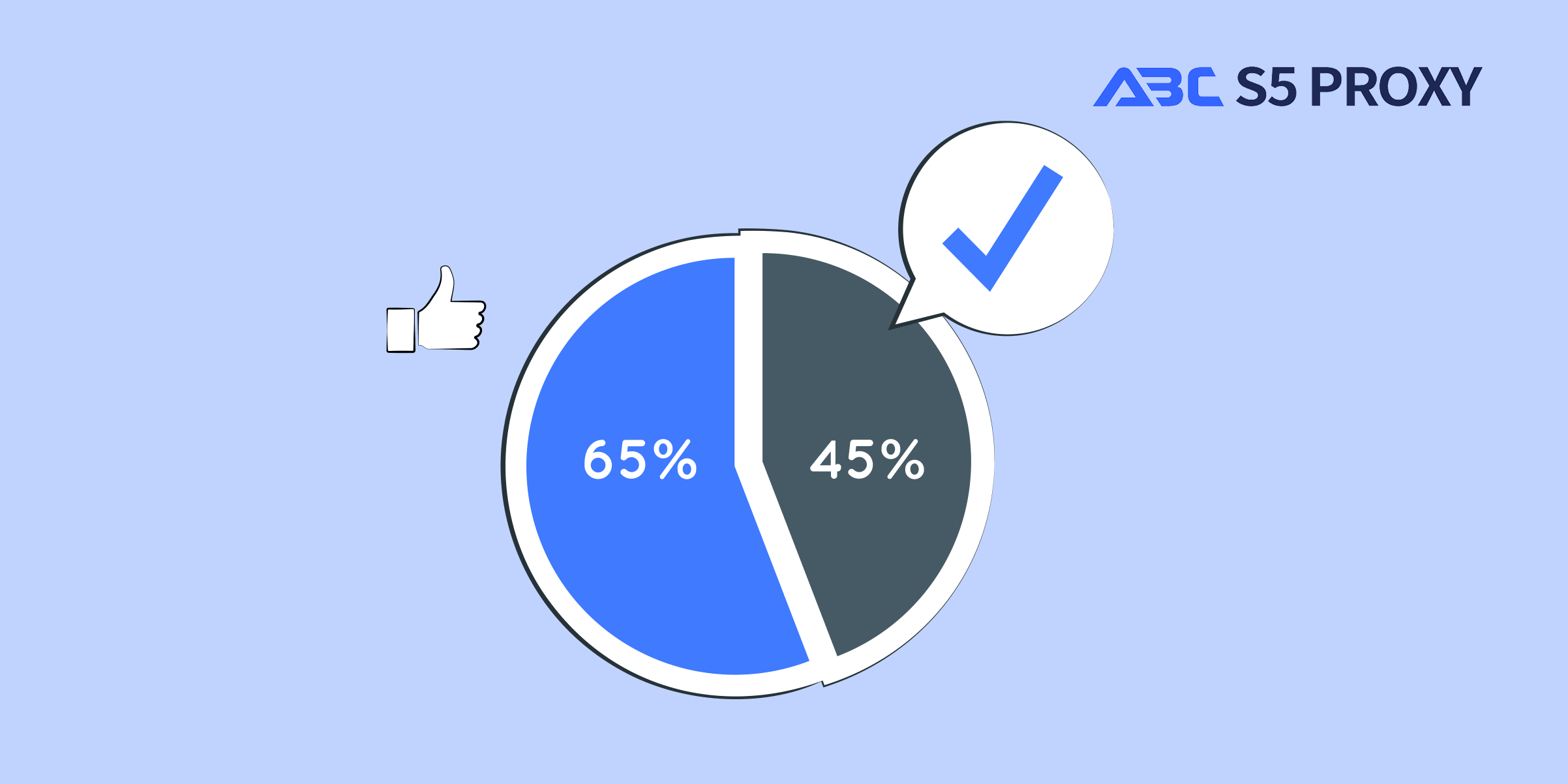Residential Proxies
Allowlisted 200M+ IPs from real ISP. Managed/obtained proxies via dashboard.

Proxies Services
Residential Proxies
Allowlisted 200M+ IPs from real ISP. Managed/obtained proxies via dashboard.
Residential (Socks5) Proxies
Over 200 million real IPs in 190+ locations,
Unlimited Residential Proxies
Unlimited use of IP and Traffic, AI Intelligent Rotating Residential Proxies
Static Residential proxies
Long-lasting dedicated proxy, non-rotating residential proxy
Dedicated Datacenter Proxies
Use stable, fast, and furious 700K+ datacenter IPs worldwide.
Mobile Proxies
Dive into a 10M+ ethically-sourced mobile lP pool with 160+ locations and 700+ ASNs.
Scrapers
Collection of public structured data from all websites
Proxies
Residential Proxies
Allowlisted 200M+ IPs from real ISP. Managed/obtained proxies via dashboard.
Starts from
$0.6/ GB
Residential (Socks5) Proxies
Over 200 million real IPs in 190+ locations,
Starts from
$0.03/ IP
Unlimited Residential Proxies
Unlimited use of IP and Traffic, AI Intelligent Rotating Residential Proxies
Starts from
$1816/ MONTH
Rotating ISP Proxies
ABCProxy's Rotating ISP Proxies guarantee long session time.
Starts from
$0.4/ GB
Static Residential proxies
Long-lasting dedicated proxy, non-rotating residential proxy
Starts from
$4.5/MONTH
Dedicated Datacenter Proxies
Use stable, fast, and furious 700K+ datacenter IPs worldwide.
Starts from
$4.5/MONTH
Mobile Proxies
Allowlisted 200M+ IPs from real ISP. Managed/obtained proxies via dashboard.
Starts from
$1.2/ GB
Scrapers
Web Unblocker
Simulate real user behavior to over-come anti-bot detection
Starts from
$1.2/GB
Serp API
Get real-time search engine data With SERP API
Starts from
$0.3/1K results
Scraping Browser
Scale scraping browsers with built-inunblocking and hosting
Starts from
$2.5/GB
Documentation
All features, parameters, and integration details, backed by code samples in every coding language.
TOOLS
Resources
Addons
ABCProxy Extension for Chrome
Free Chrome proxy manager extension that works with any proxy provider.
ABCProxy Extension for Firefox
Free Firefox proxy manager extension that works with any proxy provider.
Proxy Manager
Manage all proxies using APM interface
Proxy Checker
Free online proxy checker analyzing health, type, and country.
Proxies
AI Developmen
Acquire large-scale multimodal web data for machine learning
Sales & E-commerce
Collect pricing data on every product acrossthe web to get and maintain a competitive advantage
Threat Intelligence
Get real-time data and access multiple geo-locations around the world.
Copyright Infringement Monitoring
Find and gather all the evidence to stop copyright infringements.
Social Media for Marketing
Dominate your industry space on social media with smarter campaigns, anticipate the next big trends
Travel Fare Aggregation
Get real-time data and access multiple geo-locations around the world.
By Use Case
English
繁體中文
Русский
Indonesia
Português
Español
بالعربية

When it comes to internet security, the use of HTTPS is generally considered more secure than HTTP. The main reason for this is the presence of encryption in HTTPS, which ensures that data transferred between a user's browser and the website's server is encrypted and therefore more difficult for hackers to intercept and decipher.
HTTP (Hypertext Transfer Protocol) is the standard protocol for transmitting data over the internet. It sends data between a user's browser and the website's server in plain text, which means that anyone who intercepts the data can read it easily. This lack of encryption makes HTTP vulnerable to various attacks, such as man-in-the-middle attacks, where an attacker intercepts communication between the user and the server.
On the other hand, HTTPS (Hypertext Transfer Protocol Secure) uses encryption to protect the data transmitted between the user and the server. This encryption is achieved through SSL/TLS (Secure Sockets Layer/Transport Layer Security) protocols, which create a secure connection between the user's browser and the server. This secure connection ensures that the data is encrypted and cannot be easily intercepted by hackers.
One of the main benefits of using HTTPS is that it provides data integrity, which means that the data cannot be tampered with during transmission. This is important for sensitive information, such as login credentials, payment details, and personal information, which need to be protected from unauthorized access.
Another advantage of HTTPS is that it provides authentication, ensuring that the user is connecting to the intended website and not a malicious impostor. Websites that use HTTPS have an SSL/TLS certificate, which is issued by a trusted certificate authority and confirms the website's identity. This helps prevent phishing attacks, where attackers create fake websites to trick users into revealing their personal information.
In addition to encryption, data integrity, and authentication, using HTTPS also has positive implications for SEO (search engine optimization). Search engines like Google prioritize secure websites in search results, so having HTTPS can improve a website's ranking and visibility.
While HTTPS offers greater security compared to HTTP, it is important to note that it is not a foolproof solution. Websites can still be vulnerable to other types of attacks, such as cross-site scripting (XSS) and SQL injection, if they are not properly secured. It is essential for website owners to implement additional security measures, such as regular security audits, updates, and patches, to protect against these threats.
In conclusion, HTTPS is generally considered more secure than HTTP due to its encryption, data integrity, authentication, and SEO benefits. It provides a safer environment for transmitting sensitive information over the internet and helps protect against various cyber threats. Website owners and users alike should prioritize the use of HTTPS to enhance security and privacy online.
Featured Posts
Popular Products
Residential Proxies
Allowlisted 200M+ IPs from real ISP. Managed/obtained proxies via dashboard.
Residential (Socks5) Proxies
Over 200 million real IPs in 190+ locations,
Unlimited Residential Proxies
Use stable, fast, and furious 700K+ datacenter IPs worldwide.
Rotating ISP Proxies
ABCProxy's Rotating ISP Proxies guarantee long session time.
Residential (Socks5) Proxies
Long-lasting dedicated proxy, non-rotating residential proxy
Dedicated Datacenter Proxies
Use stable, fast, and furious 700K+ datacenter IPs worldwide.
Web Unblocker
View content as a real user with the help of ABC proxy's dynamic fingerprinting technology.
Related articles

Which is More Secure: HTTP or HTTPS?
Title: Understanding the Security Differences Between HTTP and HTTPSIn the modern digital age, the importance of cybersecurity cannot be overstated. One crucial aspect of online security is the protocol used to transmit data over the internet. Two commonly used protocols are HTTP and HTTPS, but which one is more secure?HTTP, or Hypertext Transfer Protocol, is the standard protocol for transmitting data over the internet. However, it is not secure as it operates in plain text, meaning that any data sent over HTTP can be intercepted and read by malicious actors. This makes it vulnerable to attacks such as man-in-the-middle attacks, where an attacker intercepts communication between two parties.On the other hand, HTTPS, or Hypertext Transfer Protocol Secure, adds an extra layer of security by encrypting the data being transmitted. This encryption is achieved through the use of SSL/TLS certificates, which scramble the data so that only the sender and the intended recipient can access it. T

Enhancing Email Security: The Power of Proxy Technology
Title: The Role of Proxies Technology in Strengthening Email SecurityIn today's digital age, email has become a vital communication tool for individuals and businesses alike. However, with the increasing number of cyber threats, securing sensitive information exchanged via email has become a top priority.One effective way to enhance email security is through the use of proxies technology. Proxies act as intermediaries between the sender and the recipient, masking the sender's true IP address and adding an extra layer of security to the communication process.By routing email traffic through proxies, businesses can prevent unauthorized access to their email servers, reduce the risk of phishing attacks, and protect sensitive data from being intercepted by cybercriminals. Proxies also help in filtering out spam and malicious content before it reaches the recipients' inboxes.Furthermore, proxies technology allows for enhanced monitoring and logging of email traffic, enabling organizations t

Unlocking the Power of 'GoLogin': Streamlining Your Online Identity Management
Title: Exploring the Benefits of Using Gologin for Seamless Login SolutionsIn the world of online platforms and applications, the process of logging in is a crucial element that can significantly impact user experience. One innovative solution that has been gaining attention in recent times is Gologin, a cutting-edge tool designed to streamline the login process and enhance security measures.Gologin offers a range of benefits for both users and platform owners. For users, the convenience of using a single login across multiple platforms is a game-changer, eliminating the need to remember numerous usernames and passwords. This not only saves time but also reduces the risk of security breaches due to weak or repeated passwords.On the other hand, platform owners can benefit from Gologin's advanced security features, such as multi-factor authentication and encryption protocols. By implementing Gologin, platforms can enhance their security posture and build trust with their user base, ultim